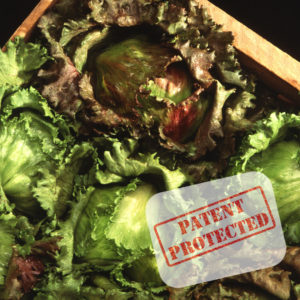
Last month, OSA submitted comments to the Patent and Trademark Office (PTO) in response to its new initiatives to ensure “robust and reliable patents.” The PTO published these initiatives in response to a July 9, 2021, Executive Order on Promoting Competition in the American Economy and is calling on the public to weigh in with “other suggestions to achieve the aims of fostering innovation, competition, and access to information through robust and reliable patents.”
OSA’s comments focused on patents related to seed-producing plants and how to ensure that the patent system isn’t being misused. For example, naturally occurring traits should not be awarded utility patents, and yet we see patents being awarded for traits like the color red in lettuce, downy mildew resistance in cucumbers, heat tolerance in broccoli, and more.
The seed industry is one of the most consolidated sectors in agriculture. Utility patents foster the concentration of market power and ownership of seed, which limits choice in the seed marketplace, squeezes out competitors, and makes our seed supply – and thus food supply – less secure. We submitted similar public comments to the US Department of Agriculture last year.
OSA believes that utility patents are the wrong tool for protecting developments in plant breeding. Unlike other agricultural inputs, seed is a natural resource that requires careful management to sustain modern food systems and those of future generations. Seeds do not fit the utility patent model because they produce food: a universally recognized human right that replicates when planted in the ground and that has evolved over thousands of years.
One of the reasons that utility patents on seed are so problematic is that owners of utility patents have far-reaching control over access and use of their products, and often restrict seed-saving and research on their protected plants and genetic traits. This means that patents remove valuable plant genetics from the pool of seed that breeders and growers rely on for improving crops, feeding communities, and exercising independence in the seed system.
We hope the USPTO and USDA will act quickly to address problematic seed patents that facilitate an unjust level of consolidation in the seed industry.
